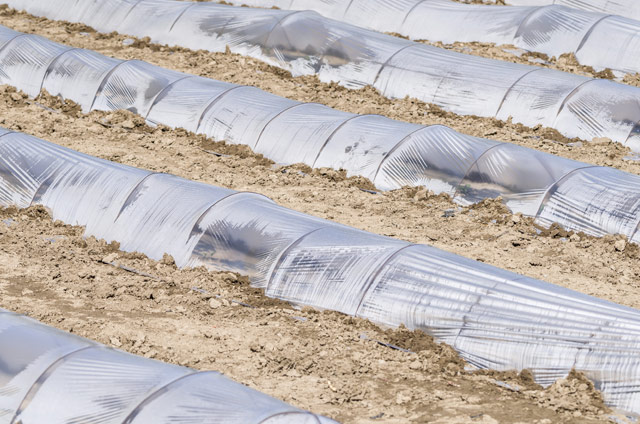The opportunity with ag plastic waste
November 8, 2017
There’s too much plastic waste making its way into our landfills, and the only way to address the problem is to go back to the basics: reduce, reuse, and recycle
Barry Friesen, General Manager, CleanFARMS
Plastic is a key material in the world economy that can be found in virtually everything these days. Worldwide, 322 million metric tons of plastic were produced in 2015, and by 2050, that number could be four times higher.
Canada’s agricultural community uses a great deal of plastic. It can be found in bale wrap, greenhouse film, tubing and pipes, pesticide containers, grain bags, silage bags, twine, nursery containers and more. While plastic has become an essential part of modern agriculture, what to do with the material when it’s no longer useful is an ongoing challenge.
Historically, discarded agricultural waste has ended up in landfills or been burned or buried, sometimes on farm property. Landfills are difficult to site and expensive to manage and plastic buried in a landfill does not decompose, thus filling up valuable space. Burn barrels and other backyard incineration methods are also problematic because they can release harmful emissions in addition to wasting valuable resources.
Alternatively, recycled plastic can be reused to produce new products using fewer natural resources in the manufacturing process, eliminating emissions and saving landfills.
To help growers better manage their farm waste, CleanFARMS has partnered with agri-retailers and municipalities across the country. We work with more than 1,000 collection sites to make our programs accessible to growers in every region. The strong demand for CleanFARMS programs demonstrates the commitment of the entire agricultural industry to protecting our environment and preserving our resources for future generations.
Last year alone, more than 5.2 million empty pesticide and fertilizer containers were collected through a CleanFARMS program, and nearly 300,000 empty seed and pesticide bags returned. New technologies in a processing facility put all this plastic waste to good use after it was sorted, shredded and melted into useful materials like farm drainage tile.
CleanFARMS is now also developing a program to collect grain bags in Saskatchewan, along with bale wrap, silage bags and twine in several locations in Manitoba. We’re working with our partners to expand these programs to other provinces.
While CleanFARMS plays in important role in protecting the environment by keeping recyclable materials out of landfills and burn piles, the work that we do is possible because of the support of our members and partners who share our vision and long-standing commitment to Canadian farmers.
For more information on how to better manage plastic farm waste, or to find a collection site near you, visit cleanfarms.ca



